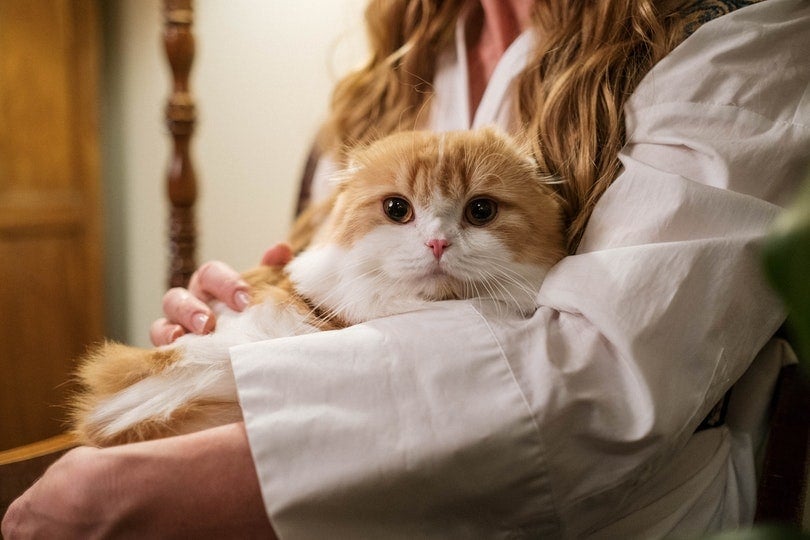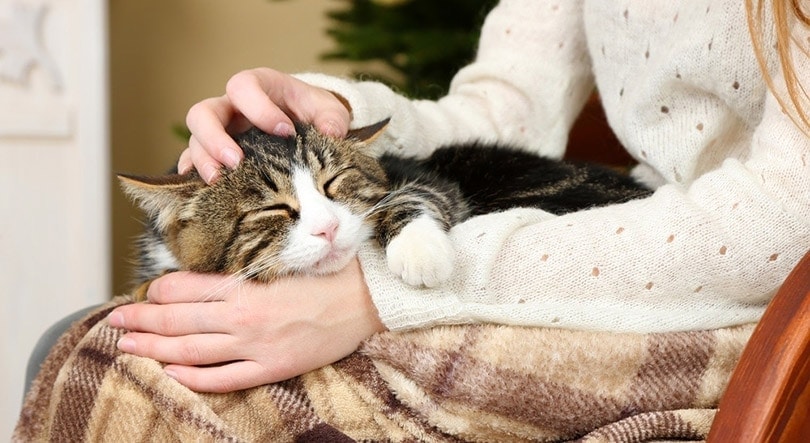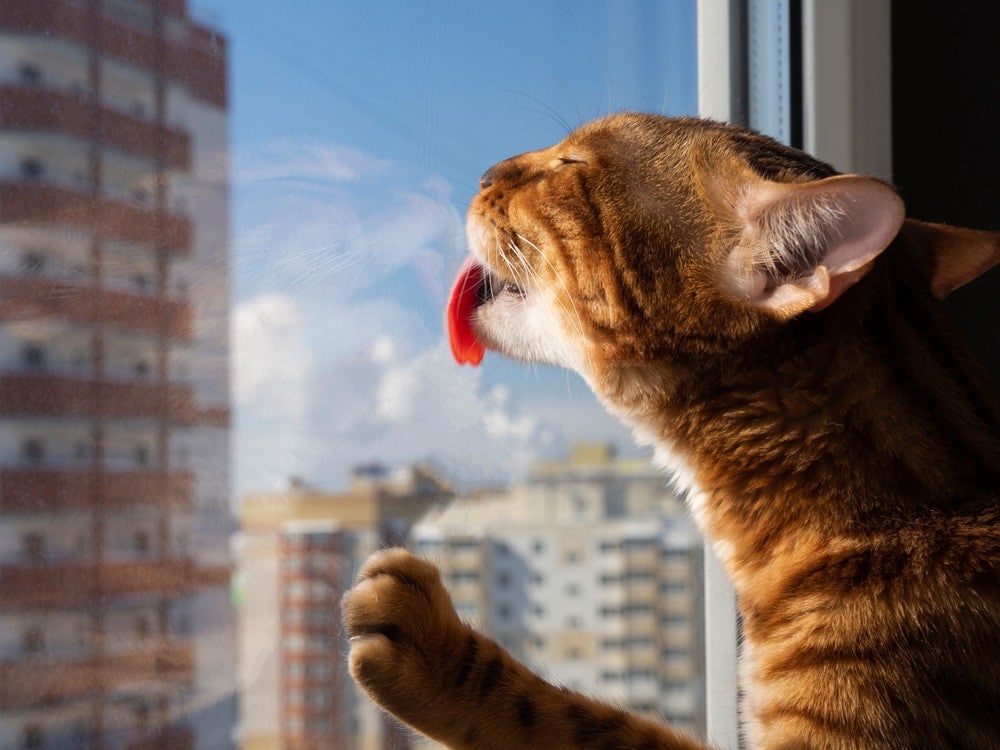Are Male Cats More Affectionate After Neutering? 3 Vet-Reviewed Potential Benefits

Updated on

The pros and cons of neutering your cat are widely debated. While some people think that you should always neuter your pet, others believe that it’s inhumane. There are many benefits to the surgery, however, and one of these is that neutered cats can be more affectionate.
While it won’t change their personality completely — a plus for cat owners who love their kitties just the way they are — it will lower their testosterone levels and reduce behaviors caused by hormones. Making them less desperate to find a mate and breed will reduce unwanted behavior and make them happier to spend time with their human friends.
To help you understand the ins and outs of neutering your male cat, here are a few things to consider.
Are Male Cats More Affectionate After Neutering?
It’s possible that neutering your male cat will make them more affectionate. He’ll be happier to spend time lazing about on your lap and napping on the couch instead of keeping an eye on his territory and looking out for potential mates.
However, neutering or spaying doesn’t change your cat’s personality. It only reduces hormones and limits the behaviors associated with them. Cats, intact or fixed, are individuals with quirky personalities.
If you have a cat that prefers to stay on his own rather than cuddle up with you in the evening, neutering or spaying isn’t going to make him more comfortable around you. More timid cats or rescues with a history of abuse might curl up somewhere close by but will maintain enough distance that they still feel safe.

What Is Neutering?
To understand the benefits of neutering, it helps to understand what the surgery does. Neutering is a surgical method of sterilization for male cats (females are spayed). It’s most commonly done when the cat is between 8 weeks and 9 months old by a licensed veterinarian, but older cats can have the surgery too.
The neutering process involves removing your cat’s testes. By doing so, their testosterone level is drastically decreased, as are their sex drive and aggressive tendencies.
The 3 Benefits of Neutering your Cat
Surgery is never pleasant, and it can be difficult to watch your feline best friend be in pain as they recover afterwards. But while the initial recovery can take a few weeks, there are three major benefits of the process.
1. Reducing Unwanted Behavior
One of the biggest reasons for getting your cat neutered or spayed is to control hormone-driven behavior. Both male cats and intact females can be noisy, particularly when the female is in heat. They’ll both prowl around — inside the house or outside — and loudly call for mates.
Also, both male and female cats will mark their territory by spraying vertical surfaces with their urine. While male cats do this to warn other cats away, females will spray while they’re in heat to announce their presence. Not only does this habit stink — especially coming from your male cat — but it’s also something else for you to clean if they do it in the house.
Outdoor cats can get into more fights when they’re still intact. They’ll be far more territorial and more likely to confront intruders on their turf. Neutering your male cat will lower his testosterone levels and make him more placid. He won’t feel inclined to wander to protect his territory or get into as many fights over nearby females in heat.

2. Prevents Health Issues
Neutering or spaying your cat can prevent many common health issues among felines. Without testes or ovaries, neither male nor female cats can develop testicular, ovarian, or mammary cancer. The surgery can also help prevent infections of the uterus, and since your cat won’t be defending his territory, he’ll have fewer wounds from street fights.
3. Population Control
Cats can have several litters of kittens a year, and that number adds up. Removing their ability to procreate might seem cruel, but it’s a humane way of controlling pet overpopulation and reducing the number of kittens abandoned in shelters.
Not only does it prevent kittens from being born in the first place, but it also prevents them from being euthanized later to reduce crowding.
Final Thoughts
Neutering your male cat can prevent various health issues, along with reducing his yowling and smelly spraying as he marks his territory. But it won’t change his personality to the extent of turning a timid feline into a bundle of boundless excitement, for example.
The surgery itself can help your cat relax more and make him lazier. While an intact male will roam the streets for hours, your neutered kitty will be more likely to curl up on the couch, with or without you to cuddle with.
Related Reads:
- Neutered vs Unneutered Male Cat: Differences And Identification
- Can Neutered Cats Still Mate? Vet Approved Facts & FAQ
Featured Image Credit to: cottonbro, Pexels










